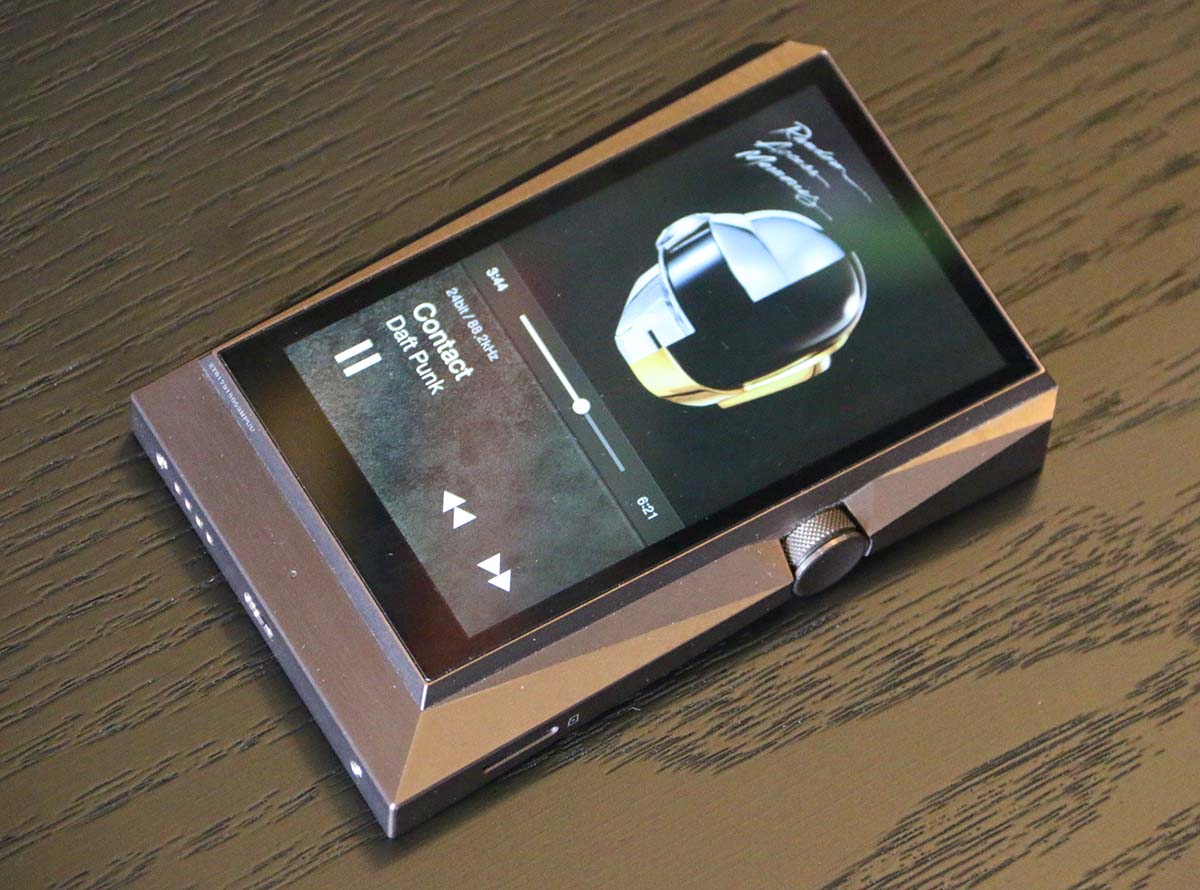
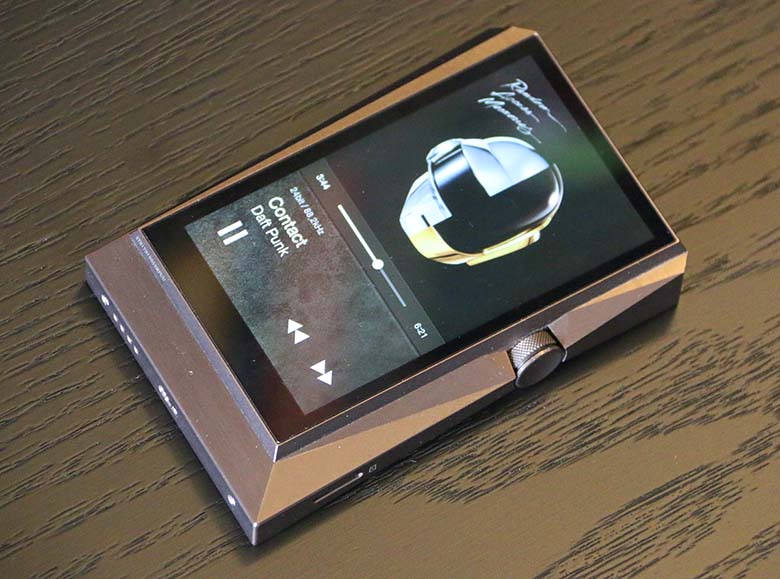
The Master Switch


The Master Switch
In the month or so we spent with Astell & Kern’s AK380 player, the most common question from those who saw it – after a few minutes spent marvelling at its stunning good looks – was the price point. When we told them it cost a hair under $3,000, the shock was palpable (though, it has since seen a small price drop on Amazon, as A&K released a new model recently). And why not? It would be absolutely insane to pay that amount of money for a glorified iPod. Fortunately, that’s not what the AK380 is. Comparing it to an iPod is like comparing a Riva Aquarama to a paddleboat. In this review, we break down the AK380’s sound, design, packaging and accessories, specs and more. To see how it stacks up, see our list of the best digital audio players.
There is a term in the restaurant business: monter au beurre. It means to mount with butter, and it’s the reason that restaurant sauces feel so much more silky and taste infinitely better than the ones you made at home. You can be on whatever diet you want, but if you order a dish in a restaurant that comes with the sauce, then that sauce will have had huge chunks of cold butter whisked into it at the last second, making it glossy and smooth and delicious. You won’t be able to taste the butter, necessarily, but it’s there – and you definitely notice the quality of the end result. In the AK380, Astell & Kern have done some serious monter au beurre of their own.
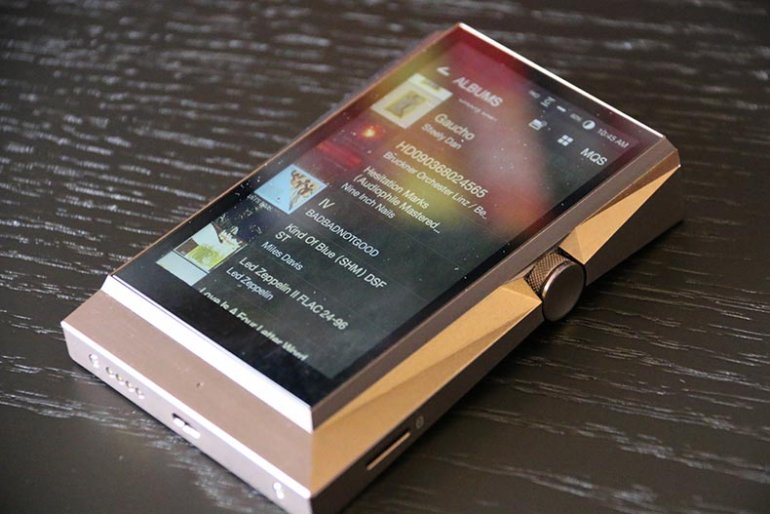
When you play a piece of music through the AK380 – whether it’s a crunchy, lossy MP3 file or a huge, multi-gigabyte DSD jazz tune – you’ll get a taste of this. There is something almost indescribable about the sound – something full and rich. An extra bit of weight to the bass, a gentle extension of the top end, the subtle highlighting of details that you might have missed. Guitars bite harder. Drums kick like mules. Vocals…Jesus Christ. The AK380 delivers one of the smoothest and most captivating vocal performances we’ve ever heard in a player, framing them perfectly. It is slightly beaten out by other models like the Questyle QP2R, which retails for $2,700, but we’re splitting hairs here. It’s damn good.
Much like the design, it was truly hard to find fault with it. Although, we did find that after testing with a huge range of headphones - from sub-$100 cans to huge monsters that cost more than the player itself (like the Focal Utopia - full review here) - that it's effect becomes far more appreciable when your headphones can match the audio architecture. Then again, if you can afford this player, that shouldn’t be a problem.
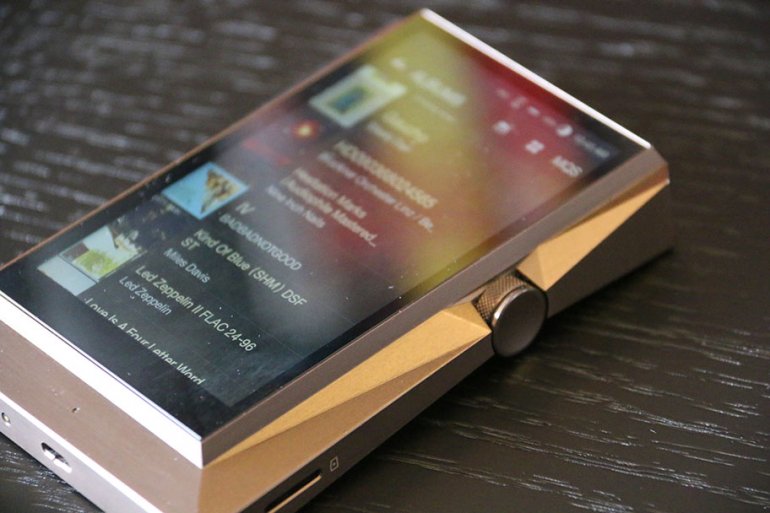
It’s worth talking a little bit about the guts of this thing, and what they’re capable of. The big draw here are the twin DACs – unusual enough that we raised an eyebrow when we read about them. You get one per channel, and they consist of dual AKM AK4490 chips. They do an absolutely extraordinary job, up there with the best stand-alone DACs, and even the most hardcore of DAC haters – the ones who claim that a thirty-cent chip from the hardware store will do the same job as a finely-tuned $2,000 Benchmark DAC3 (full review here) – would be hard pressed to argue that something special isn’t happening here.
The AK380 is capable of taking a huge number of audio formats, able to process PCM audio up to 32-bit/384kHz without any downsampling. It also quite happily takes DSD files – see our full explanation if you’re unfamiliar with this particular format – up to 5.6MHz. It has a femto-clock to reduce jitter, and even though we’d be lying if we said we could pick up exactly how that translated into the sound quality - no-one’s ears are quite that good - we’d bet it had something do with the buerre.
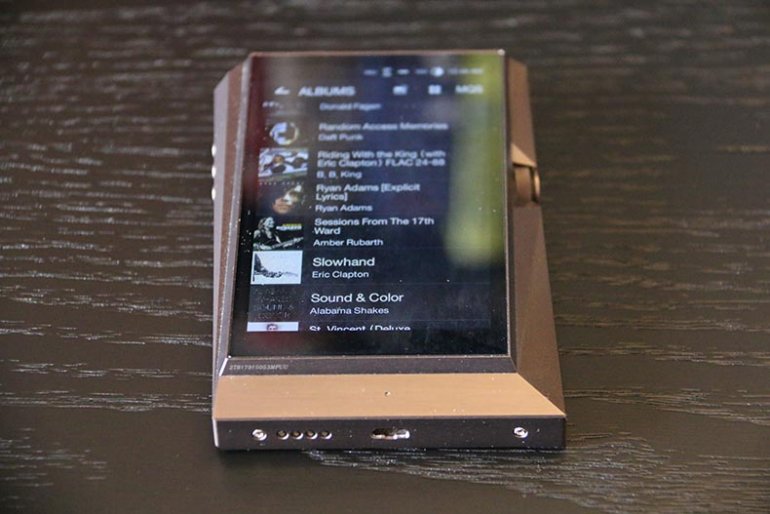
The parametric EQ is good, too, allowing you to fully customise every aspect of the sound. It doesn’t support DSD audio, but you can use its twenty bands to fine-tune other formats, and we found it work splendidly. You might argue that the sound is a little too subtle to please people looking to have their hair blown back. We argue differently. The sound of the AK380 is nothing short of stupendous – the Riva Aquarama of portable audio, able to convey effortless class and style. We absolutely adored it, and again: we think it’s worth every cent of the asking price.
On that note: is the AK380 worth the money? As a digital audio player…probably not. It’s an absolutely gorgeous piece of equipment, but if all you’re going to do is use it as a replacement for your phone, there are probably a dozen other models that will do the job just as well, if not quite so stylishly.
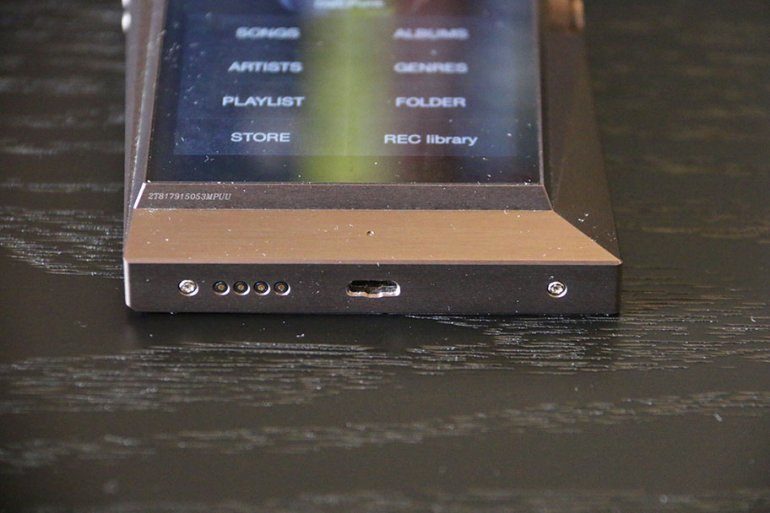
But here’s the interesting thing about the AK380. It’s not actually a portable audio player. Oh, it’s portable. And it plays audio. You can slip into your pocket and plug a pair of headphones into it and take it out and about with you. But if that’s all you’re doing with it, you’re missing the point. In reality, this is a fully equipped music server that just happens to be portable as a side effect. In that context, the four figure price tag begins to make a scary amount of sense. Don’t believe us? Put it up against the competition. In terms of music servers – as in, music storage repositories which can direct traffic to different sets of speakers and headphones across multiple networks and connections – $3,000 (or the reduced price on Amazon of $2,799 – is right in the middle of the range. Something like the Aurender Flow, a similar system, costs around one and a half grand. To view the AK380 is simply a glorified iPod is to completely miss the point. It’s an amazing, stupendously-well-designed music server that just happens to be able to moonlight as a pocket audio device.
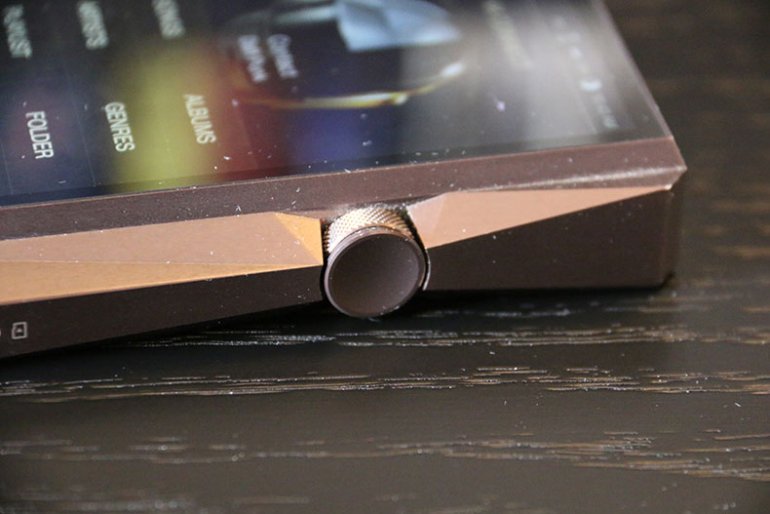
Before we begin, a quick note about why we’re reviewing the AK380, which dropped in 2015. We recently published a roundup of the best digital audio players available, and our writer Niko Tsonev named the AK380 as his top pick. Never being ones to miss an opportunity, we asked A&K to send a unit to our offices (Niko is based in London, and we weren’t with him when he tested his).
They very kindly did, but almost immediately after we received it, they announced they were releasing a brand new DAP, the A&Ultima SP1000, with a bigger screen and an advanced DAC chip. And a bloody terrible name that looks like HTML code. That is now currently at the top of the aforementioned list, and we’ll be doing a full review of that soon. Meantime, the AK380 is still very much available - and worth reviewing.
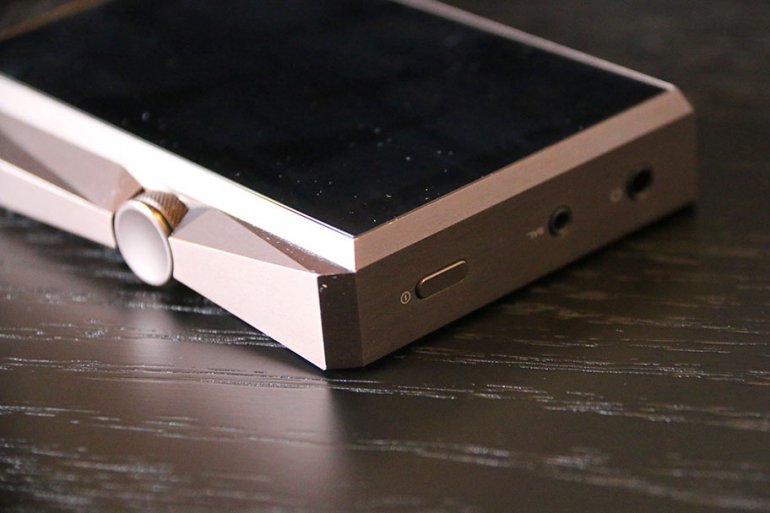
You’re not going to pay $3,000 for something unless it looks fantastic. South Korea’s iRiver, who own the Astell & Kern brand, understand this, and what they’ve done is turn the AK380 into something that is a genuine delight to hold. It’s roughly the size of a smartphone, albeit a little bit thicker and heavier, with a full touchscreen interface – which we’ll get to in the second. The chief design feature is the casing, which is made of solid metal, and which is absolutely exquisite. There’s a universe in which we could see a critic looking at the almost brutalist lines and angles, and getting turned off by it, but it sure as hell isn’t this universe. Compare it to the Sony NW-WM1Z N, which looks like it was designed by Jony Ive after a really long lunch.
The casing isn’t just a joy to hold, but is also a genuinely beautiful object, picking up the light and offsetting the functional nature of the screen. Running your fingers along it, you’ll find that the angles gently guide them to the knurled volume knob – a satisfying physical control scheme that has a light, pleasant click when turned, and feels terrific. It’s a somewhat otherworldly, almost alien object – in a good way – and that impression is enhanced when you turn over to encounter a back panel with an almost holographic design. The fact that the colors you can choose from include not just black and copper but something called Meteoric Titan only add to this.
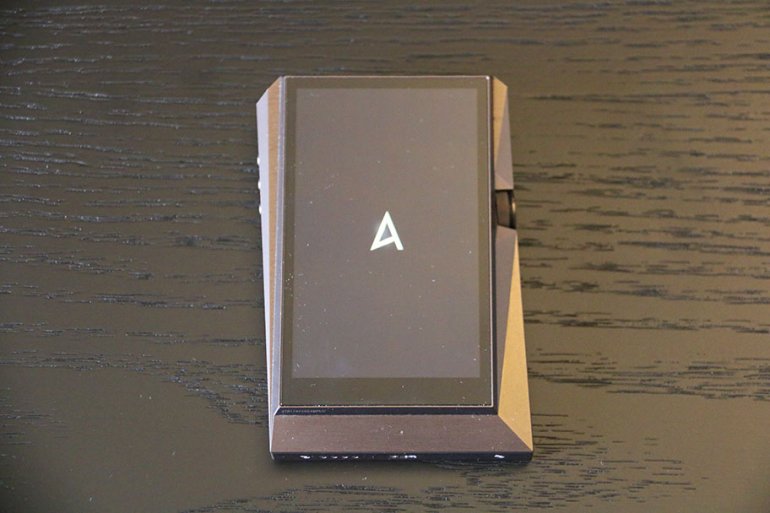
The slots and ports around the edges are minimal. While it has a very generous 256GB of on-board memory, there’s a slim SD card slot around the side, capable of taking that much again. On the bottom, there’s a micro USB port (the cable doing double duty as both a charging connection and a data transfer one) and the connection for the player’s amplifier dock, which is sold separately, and which we didn’t get to test. On the opposite side to the SD card slot, there are three circular buttons to skip, rewind and pause tracks, and on top, you’ll find the power button, a 3.5mm standard headphone connection, and a 2.5mm balanced one. Every one of these items works well, and is intuitive and simple to use – something that is going to become a bit of a theme with this review, as we’ll see.
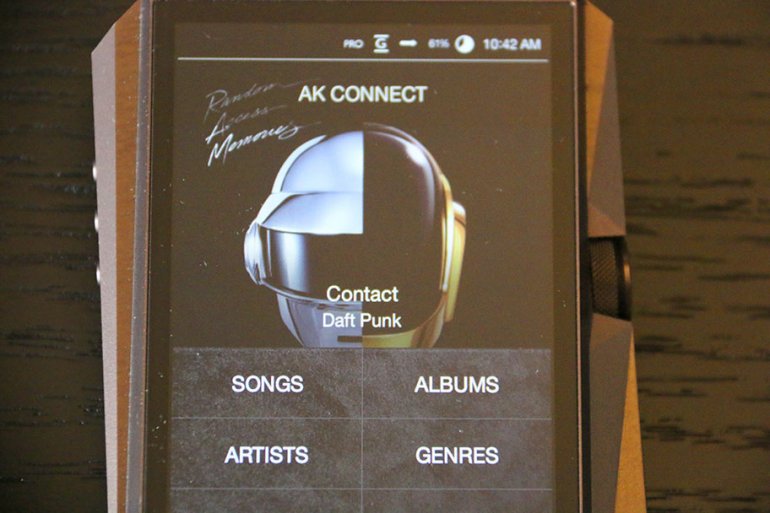
Booting up takes about twenty-five seconds, which sounds long, until you realise that what’s running here is essentially a smartphone that can’t make or receive calls. It runs off a modified Android operating system, and although we did detect a slight lag in our touches, it was never long enough to bother us. For the most part, we were just in awe of how well-designed the software was. While the outside was brutalist and imposing, the inside was as welcoming and easygoing as a favorite grandmother. The 4” tempered touchscreen itself looks really good, with bright, vibrant colors and good contrasts. Menus were laid out in a thoughtful and intuitive way. Everything was where we thought it was going to be. Even without having glanced at the instruction manual, we instinctively swiped down from the top of the screen to bring up our settings – and we were rewarded with a grid of instantly accessible icons, like Bluetooth and Wi-Fi connections, as well as access to the comprehensive EQ. A single touch could enable and disable gapless playback, turn the line-out function on or off (because you could, quite happily, connect this to another device with an optical cable), connected to a PC in either data transfer mode or as a DAC (Digital-to-Analog Converter), and so much more.
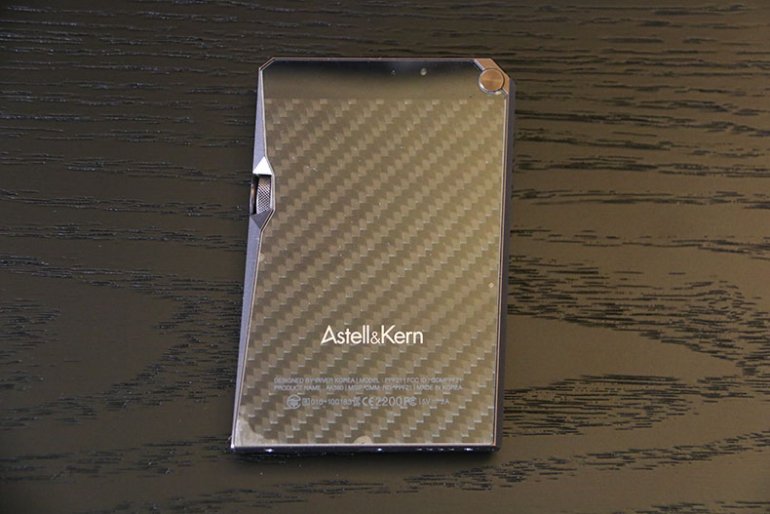
Of course, you can use it as a simple portable audio player – and we did, extensively – but it was absolutely astonishing just how simple it was to turn it into a media server for a speaker system, or get to talk to a computer, or to another audio unit entirely. Everything was no more than a couple of taps away. All of it – from setting up a playlist to using the proprietary AK Connect software to link with a computer and the music files on it (the AK380 can handle any NAS or DLNA-connected devices, and has a separate Android/iOS app) to applying a seemingly endless number of filters to narrow down the music you’re listening to - requires almost no instruction. It just works.
Some may find it a problem that there’s no external power adaptor, but we didn’t really notice it as an issue. Charging wasn’t super-quick - around three and a half hours, from a laptop USB port - and battery life was decent if unspectacular, at around eight hours. That is, we should point out, one of the few big problems the AK380 has. Something cheap and rubbish, like the Dodocool DA106 (full review here, god help us) offers 28 hours of battery life. Get that if you want length, get the AK380 if you want quality.
In terms of design, there is so little to get grumpy about here that we are genuinely reaching when we tell you that the volume indicator, when you twist the knob, remains on screen a little too long, and that perhaps something should be done about the extra nanosecond of lag when you touch an option. And actually, there is one genuine issue we’d change: the touch-sensitive home button on the casing, which in our experience always took a long, hard press to work, and which we mostly ended up ignoring. But these are relatively small things - easily fixable, we hope, in the next iteration. And aside from those, and in terms of combining stunning and eye-catching design, intuitive functionality, and sheer range of features, the AK380 is almost faultless.
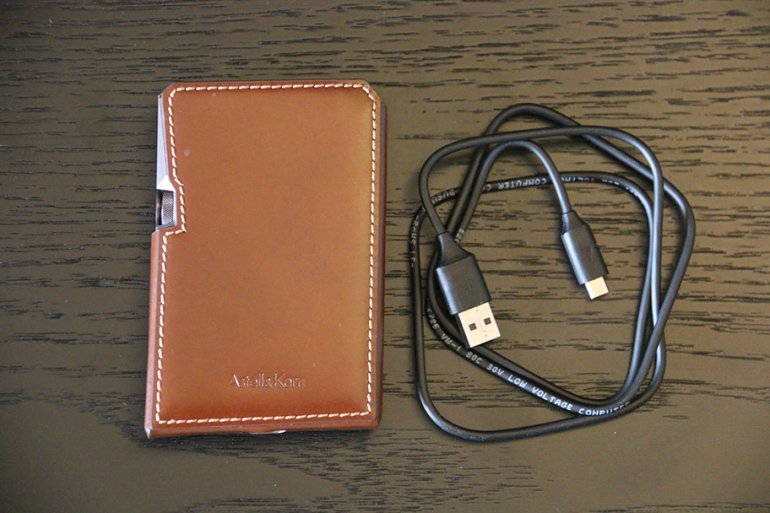
The AK380’s accessory game is on point. To the shock of absolutely no one. The box is glorious. It’s as if the case is hiding a rare jewel: all luxurious, textured cardboard and smooth embossing. When the player is finally revealed, it’s nestled on top of a fabric pull tab that allows you to lift it out, and the interior of the box is cleverly designed to echo its angles. While there are some that might be disappointed that this thing doesn’t come in something like a wooden case, we certainly feel that the box didn’t disappoint. It looks and feels superb.
Lift off the top compartment, and you’ll find an additional section with the accessories. Chief among these is an absolutely gorgeous cover for the player, made of buttery-smooth, hand-stitched Italian leather, and accompanied by a certificate of authenticity. While we did find we didn’t use this much – it was a little too stiff around the player for our liking – we can absolutely see the leather getting more supple with time, and there’s no denying that in terms of luxury accessories, it definitely qualifies. Outside of that, there aren’t too many other accessories worth mentioning. You get a simple, short micro-USB cable, some clear screen protectors, and assorted documentation. It would have been nice, in retrospect, to have some kind of external carry case for the player, not just a leather protector – but when the leather protector in question is so well-designed, with such obvious craftsmanship, it feels almost rude to point this out.
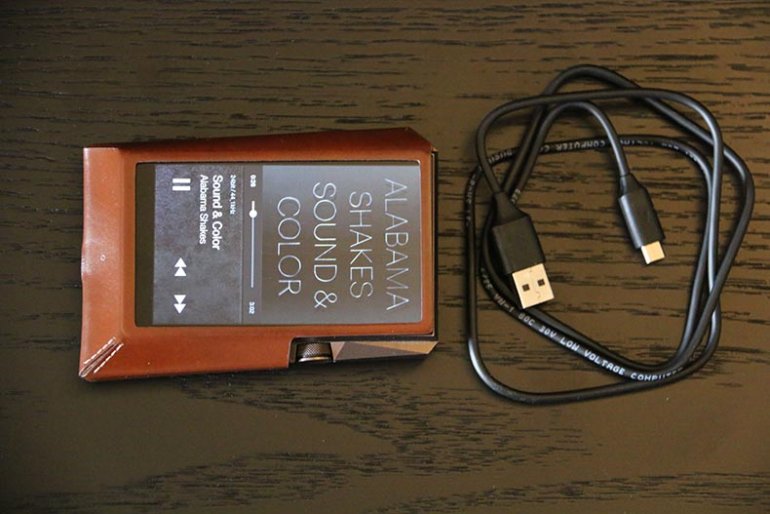
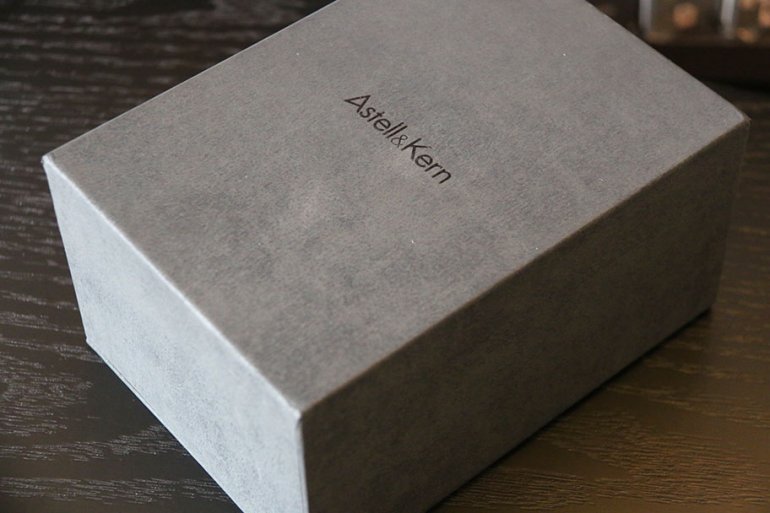
| DAP | Price | DSD | Storage | Wi-Fi/BT* | Max Sampling |
|---|---|---|---|---|---|
| Astell & Kern AK380 | $2,799 | Yes | 256GB (+256GB SD) | Wi-Fi | 32bit/384kHz |
| Astell & Kern A&Ultima SP1000 | $3,499 | Yes | 256GB (+256GB SD) | Wi-Fi | 32bit/384kHz |
| Sony NW-WM1Z | $2,699 | Yes | 256GB | Bluetooth | 24bit/192kHz |
| HiFiMAN HM901S | $1,499 | Yes | 256GB SD | N/A | 24bit/192kHz |
| Shanling M0 | $99 | Yes | 512GB SD | Bluetooth | 32-bit/384kHz |
*BT = Bluetooth
Want Even More Master Switch? Sign Up For Our Weekly Newsletter!
Want the newest version of the AK380? Feel like spending an additional $1,000 or so? The Astell & Kern A&Ultima SP1000 is what you would buy. It takes everything that made the AK380 great, and kicks into the stratosphere. Plus, Astell & Kern unsurprisingly dominate this product category, so it’s no mistake that we recommend another one of their products as an alternative. The SP1000 – we refuse to use the first part of the name, which is just stupid – has a 5” screen to the AK380’s 4”, two improved DAC chips, and a whole host of other features. It’s not going to do anything the AK380 can’t, realistically, but if you have to have the latest gadgets, go for this one. Although you will need to pay $3,499, compared to the current price for the AK380 of $2,799.
Sony is one of the few companies matching A&K for price in this category, but they've got a winner with the NW-WM1Z. The WM stands for WalkMan (obviously) and this player is fully compatible with the likes of the TA-ZH1ES amp (full review) which has a dedicated connection for it. Although it doesn't have the same design quality as the AK380, it packs an awful lot into its slim frame. It has slightly less storage and bit/depth sample rate maximums, but this is definitely a viable alternative, if you want something more down to earth. Well, relatively: it is a mere $100 cheaper than the AK380, at $2,699.
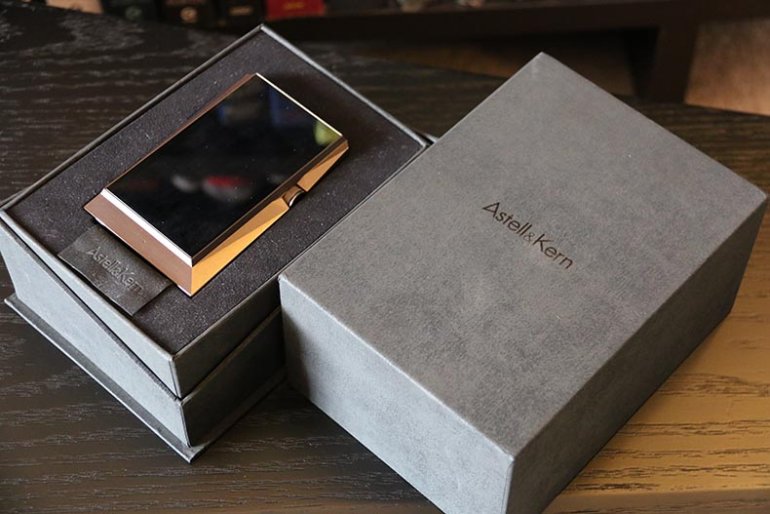
Moving into the land of the more sensibly priced, the HiFiMAN HM901S brings both DSD and 24-bit/192kHz sound at a price of “only” $1,499 - much cheaper than the $2,799 A&K ask for the 380. It’s definitely not as exciting as the AK380, but it does an excellent job. You’re not going to get the beautiful design of something like the Flow, and we think there’s a definite (if slight) drop in sound quality from the upper reaches of this particular category, but the HM901S still made it into the number two position on our list of the best digital audio players, and is well worth picking up.
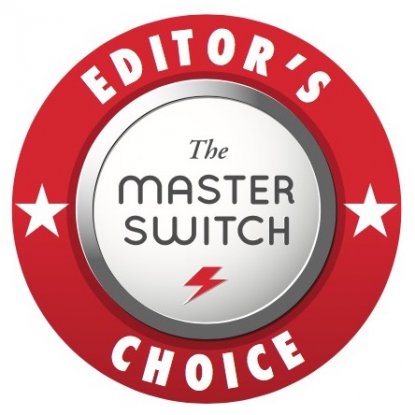
Let’s wrap up with something sane: The Shanling M0. It’s a tiny, beautifully-built little player - nothing on the AK380 of course, but at $99, it would take over twenty-seven of them before you could have one of those. You get a touchscreen, aptX Bluetooth, fifteen hours of battery life, and decent sound - although you will need an external card for storage. It’s also smaller and cuter than the old Apple iPod Nano. Good job, Shanling.
But listen: the Astell & Kern AK380 was, even at its original launch price, a steal. Go-ahead: lambast us in the comments, complain that we’re giving legitimacy to a rich person’s plaything. We’ll smile, and call you wrong, and go right back to messing around with the AK380. It gets a well-deserved Editor’s Choice badge from us.
See the Astell & Kern AK380 See the Best Digital Audio Players